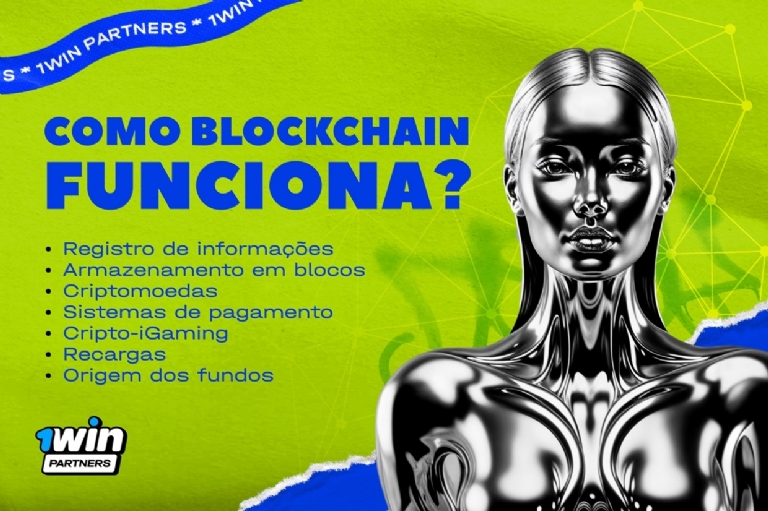The advancement of technologies has been the subject of numerous discussions about what it represents and how much it can improve the user experience and regulatory compliance in iGaming. 1win Partners addresses in this exclusive article for GMB what one of these innovations can contribute to the segment. The company asks: "What is blockchain and what does it offer beyond Bitcoin?"
Blockchain is widely considered one of the most advanced technologies of the 21st century, along with AI (artificial intelligence) and VR (virtual reality). But what is this technology? What does it have to do with the iGaming sphere? What can blockchain offer beyond Bitcoin?
Don't forget to follow us on social media, to stay up to date with everything new and better in iGaming - Telegram, YouTube, Instagram, Threads
What is blockchain technology?
Although blockchain is still a young technology, it has already started a revolution in aspects such as payment solutions, regulatory compliance, and gaming. If you want to get an idea of the future of the iGaming sector, we suggest you closely follow the development of blockchain.
But what exactly is this technology? Simply put, blockchain is a way of recording and storing information, which makes it virtually impossible to tamper with data. The technology does not use a unique centralized record of transactions, but rather a digital ledger that is duplicated and distributed across the network.
Transactions are verified by comparing the information stored in these records (the information is stored in "blocks", hence the name blockchain). This means that, to forge, the vast majority of computers on the network must be monitored. Although this is possible in theory, it is not feasible in practice.
Blockchain and iGaming
It is important to realize that, although cryptocurrencies are created using the blockchain protocol, the potential of its application goes far beyond that and remains unexplored.
As for the iGaming sphere, the main focus of the application of blockchain technology is working with payment systems. We can now observe the rapid growth of sites offering players crypto-casinos and various sports betting houses. In addition, market leaders have long offered support for top-ups in various cryptocurrencies (1win Partners is among them).
But everything has a downside. The main problems of strict implementation of blockchain technology in iGaming are the difficulties in complying with KYC (know your customer) and compliance (anti-money laundering) policies. These policies are applied particularly rigorously in countries where gambling is regulated by the state.
The most striking example is the United Kingdom. The UKGC (UK Gambling Commission) requires to be informed about the introduction of new payment methods. This is necessary to verify compliance processes after the integration of new payment methods. And, although cryptocurrencies are foreseen and authorized by the UKGC, the UK commission is relentless regarding the unique challenges that cryptocurrencies entail.
Operators must obtain all the necessary information to comply, including determining the origin of the funds. It is also challenging to operate compliance triggers, given the fluctuations in the exchange rate of cryptocurrencies, which is much higher than that of fiat currencies.
All this sounds complicated, but in a nutshell, the main difficulty associated with regulation (if we talk about the integration of cryptocurrencies in casinos) is identifying the origin of the funds. Transactions in the classic banking sphere are much easier to track, as many processes require identity verification and almost all cryptocurrency wallets are anonymous.
But, as we mentioned above, cryptocurrency is just one part of blockchain technology. What may not create obstacles, but, on the contrary, improve and advance the iGaming sector.
Some market participants are well aware that blockchain can be used to increase regulatory compliance and player protection.
This technology is used to securely record everything that happens on a platform. Operators can then receive and store reports on player activity, ensuring their privacy, but, if necessary, can provide the necessary evidence to competent authorities.
Conclusion
This is just the tip of the iceberg of blockchain. We have not yet touched on NFTs, which are actively and directly used in games. Leave your comments on our social networks and, for sure, we will launch a continuation of this article.
Well, to get the best terms of cooperation, write to the manager of 1win Partners.
Source: 1win Partners









